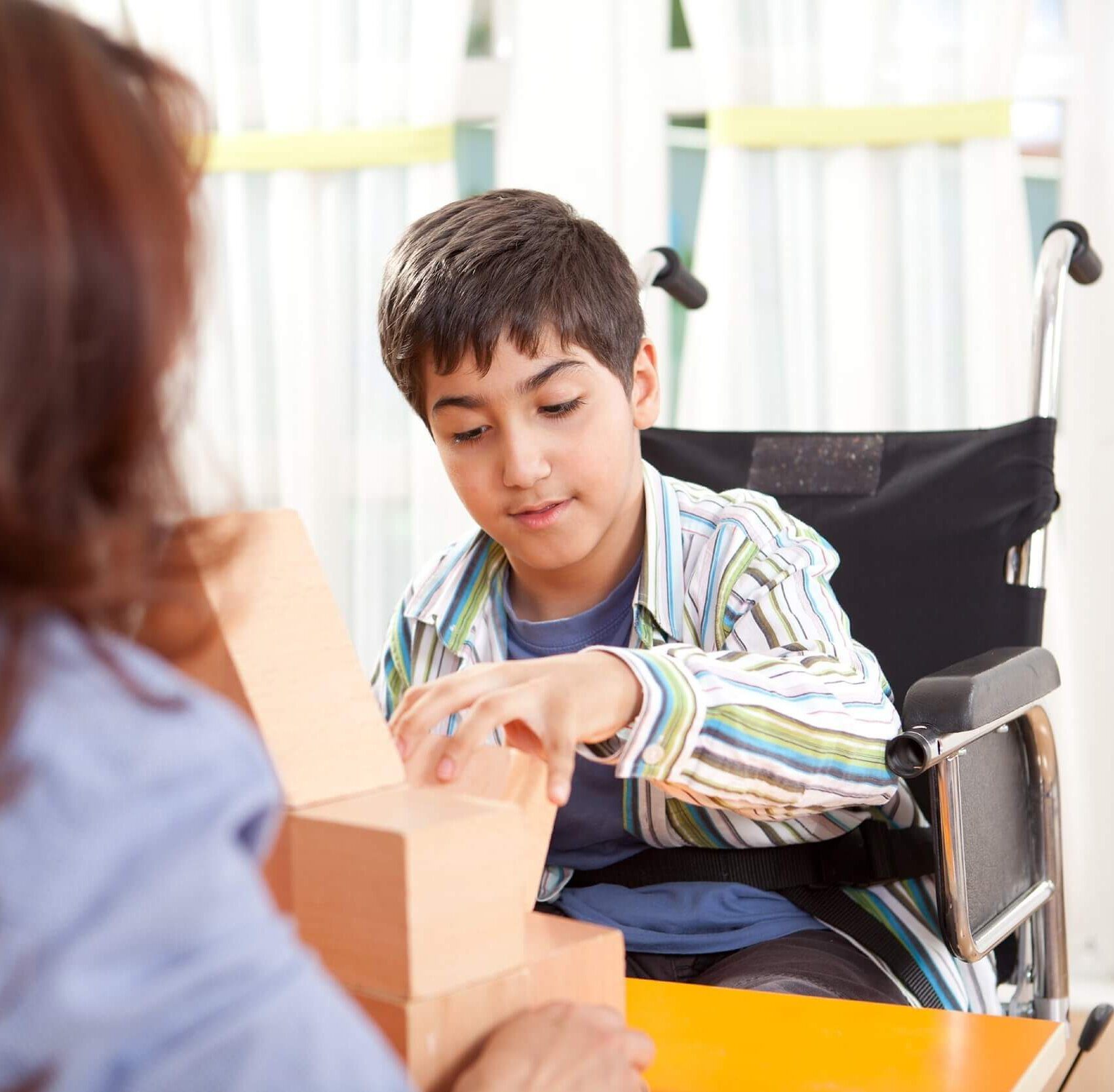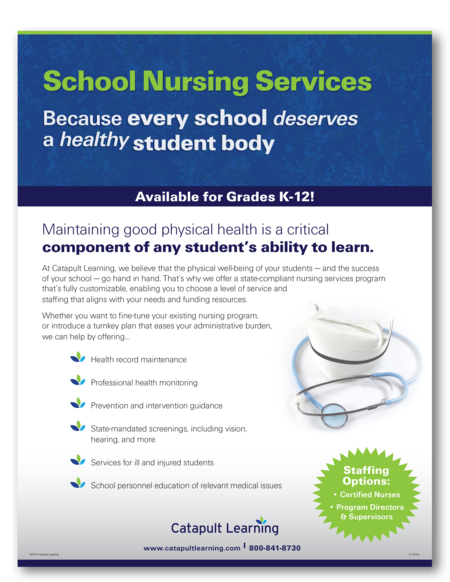Focusing on core academic issues while also providing the behavioral, social, therapeutic, and other support services struggling students need is enough to stretch the resources of most schools. Catapult Learning provides expert support to schools struggling to meet the growing demand of student learning, social, behavioral, communication, and health and wellness challenges. That means you don’t need to hire and manage full-time professional specialists—we handle all the details, communication, and coordination, and you get seamless support that extends resources to your students and families.
Jump to a specialized service to learn more:
Mentoring
Physical and Occupational Therapy
Speech and Language Services
School Nursing
Preschool Programs
Child Find Assistance
Mentoring

Connect struggling learners with experienced positive adult role models to provide guidance and build confidence. Our trained mentors support more than just a student’s academic needs. We match students with mentors who are compatible with a student’s cultural, religious and ethnic needs, ensuring a deeper relationship with the mentor and better outcomes for the student.
Mentoring relationships are a win-win for both your school and your students. Through mentoring, students:
Physical and Occupational Therapy
Catapult Learning’s Physical and Occupational Therapy programs help students fully and functionally participate within a school environment by meeting the needs identified in a student’s Individualized Education Program (IEP) or Individualized Service Plan (ISP). Our therapists are credentialed to meet or exceed local requirements.
Program Benefits
Physical and Occupational Therapy programs build stronger and more inclusive learning environments. Our licensed health care professionals:
- Support healthy school communities that are conducive to learning by offering services to meet broader student behavioral and learning needs
- Consult on programs focused on functional movements such as handwriting and social skills, and organize whole-school initiatives around anti-bullying and mental health
- Identify and reduce barriers that limit student participation
- Promote functional independence for students with significant challenges through purposeful and goal-directed activities.

Speech and Language Services

Meet the identified needs of students through our full spectrum of speech and language services, customized to the needs, preferences, and funding options of each school. Our speech and language professionals are qualified and credentialed – meeting or exceeding state and district standards. We supervise our staff and communicate closely with parents, guardians, classroom teachers, and administrators to ensure seamless support within your school community. We provide the following services:
- Screenings
- Small-group therapy
- Parent instruction
- Evaluations
- Individual therapy
- Teacher/staff training and collaboration
Student Support
Speech and Language Pathologists help students with delays in the following areas:
School Nursing
At Catapult Learning, we believe that the physical well-being of your students and the success of your school go hand in hand. That’s why we offer fully customizable, state-compliant nursing services that allow you to choose a level of service and staffing that aligns with your needs and funding resources.
Learning improves when students are cared for and healthy
Attendance Rate Increases
Absentee rates decrease when nurses administer daily treatments and first-aid.
Time in Class Increases
Nursing services help keep students in class by providing services at school locations. Students spend less time traveling off campus to receive medical attention.
Teachers Can Focus on Teaching
Studies show that without a school nurse on staff, teachers could spend more than 25 minutes a day on health-related matters. With a school nurse on staff, time decreases to fewer than 10 minutes.
Preschool Programs
Help young children develop a solid learning foundation and readiness for kindergarten through Catapult Learning’s EarlyLearners preschool programs, which promote academic learning and character development during the critical formative years of life. Whether you’re looking for a full-day, half-day, or wrap-around program, we’ll seamlessly integrate our program into your district’s curriculum to:

Family Involvement
Parent involvement and open communication provide a consistent learning experience for students. Our EarlyLearner’s program includes:
Sample Program Activities
Engage families, students, and staff through a variety of program activities, including:
Child Find Assistance
Looking for help meeting Child Find requirements? Catapult Learning evaluates referred parentally placed private-school students to determine their eligibility for special education services. Our services are provided at the school where the child is enrolled. We can provide evaluations in the areas of:

Contact Us to Learn More

